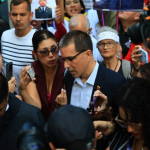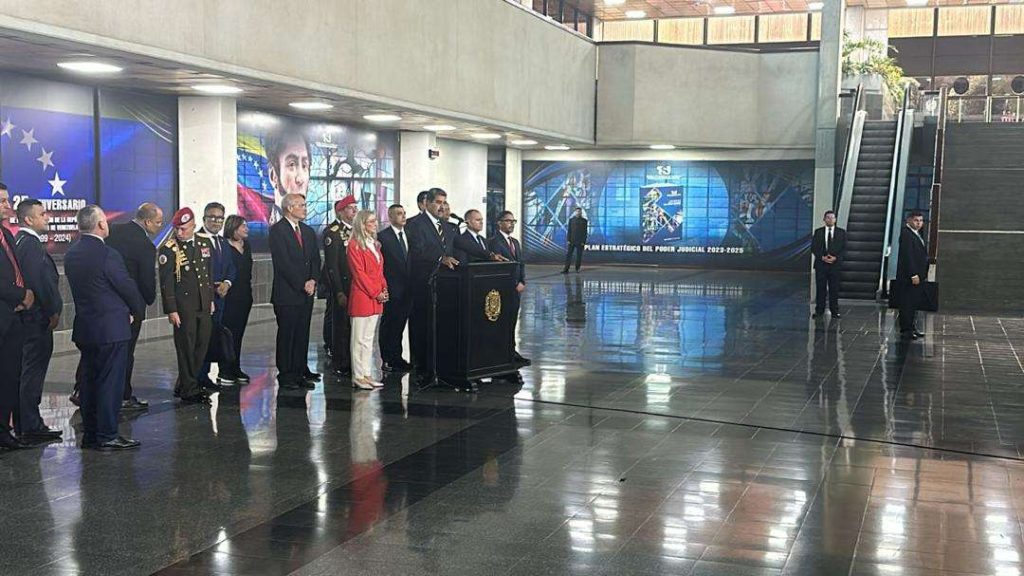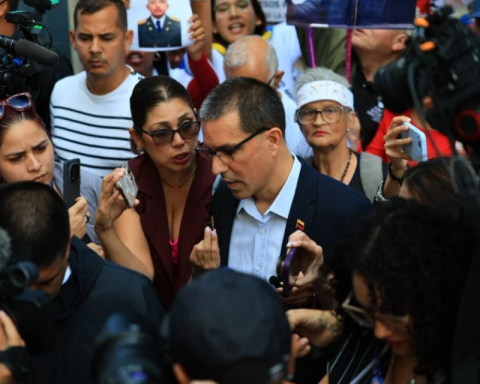Jerusalem, Aug 9 (EFE)).- The international community, which is putting renewed pressure on Israel and the Islamist group Hamas to agree to a ceasefire, is investing all its diplomatic resources to avoid a new war in the Middle East, where Iran and the Lebanese Shiite group Hezbollah are threatening to retaliate for the recent assassinations of their leaders.
Israel announced on Friday that it will send a delegation of negotiators next Thursday to discuss “the details of the implementation of the agreement” for a truce, after the United States, Egypt and Qatar, which are acting as mediators, demanded that discussions be resumed in Doha or Cairo “to close all remaining gaps” and implement the pact “without further delay.”
Hamas, which has just named militant Yahya Sinwar – until now the Islamist group’s military chief in the Gaza Strip – as successor to the recently assassinated political leader, Ismail Haniyeh, has not responded to the mediators’ call, but the international community has exerted pressure.
The head of European diplomacy, Josep Borrell, expressed his “full support” for the ceasefire, considering that it “will pave the way for regional de-escalation,” while the president of the European Commission, Ursula von der Leyen, stressed that it is “the only way to save lives and guarantee the release of the hostages.”
Italy, Germany and Spain have individually joined in the pressure for a truce, as have several Arab countries: the United Arab Emirates, Oman, Iraq, Kuwait and Lebanon.
However, pressure to the contrary – not to sign the agreement – re-emerged from within the more extremist ranks of the right wing of the Israeli government.
Finance Minister Bezalel Smotrich, an anti-Arab nationalist, called the deal a “dangerous trap” and criticised its provision for the release of Palestinian prisoners in exchange for Israeli hostages.
The war broke out on October 7 last year after a Hamas attack on Israel that left some 1,200 dead and 251 kidnapped.
After more than 10 months of escalation, the Israeli offensive in the Gaza Strip has left almost 40,000 dead – most of them children and women -, more than 90,000 wounded, 10,000 missing under the rubble and 1.9 million displaced people surviving in an unprecedented humanitarian crisis.
The mediating countries are seeking a cessation of hostilities that would allow for the massive entry of humanitarian aid into the Palestinian enclave, as well as the release of the 111 hostages that Hamas continues to hold, of whom at least 39 have reportedly lost their lives.
Escalation on Israel-Lebanon border
In parallel with the attempts to resume negotiations, the exchange of fire between Israel and the Lebanese Shiite group Hezbollah continues. Two Hezbollah members were killed on Friday after an Israeli drone bombed the town of Naqoura in southern Lebanon, while the pro-Iranian militia claimed responsibility for eight attacks against Israel.
Since late July, Israel has been on the lookout for a large-scale attack by Hezbollah and Iran in retaliation for the killings of senior members of the Lebanese militia group and Hamas.
Hezbollah military leader Fuad Shukr was killed in an Israeli strike outside Beirut on July 30, shortly before the assassination in Tehran of Hamas’s then political leader Ismail Haniyeh in an attack Iran blames on Israel.
Israeli Defense Minister Yoav Gallant warned Lebanese residents on Thursday that if Hezbollah continues its attacks, Israel will respond “with full force,” and held a call with his U.S. counterpart Lloyd Austin last night about “operational readiness to defend Israel against Iran and its proxies in the region.”
In addition, the commander of the US Central Command, Michael Kurilla, landed in Israel yesterday on his second visit this week, to make “joint preparations in the region.”
The Lebanese government is working on a contingency plan, while several countries have asked their citizens to evacuate the country and several airlines have cancelled flights to Beirut and Tel Aviv.
Tehran, meanwhile, is weighing its response options while facing intense diplomatic pressure not to open a new regional war.
The British newspaper The Guardian says that Iran could choose to attack Israeli intelligence agents or Iranian collaborators that it believes participated in the assassination of Haniyeh instead of launching an attack against Israel. EFE















